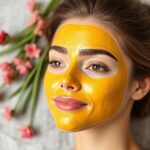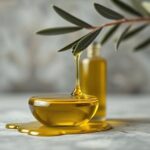Want glowing skin like a Greek goddess? Explore skincare, makeup, and fitness secrets inspired by Greek beauty traditions and modern habits.
Greek ladies are known for their beautiful, healthy skin, dazzling complexions, and elegant appearance. Their beauty secrets are firmly anchored in historical customs, natural cures, and a Mediterranean lifestyle.
Take a peek at their cosmetics, skincare, and fitness recommendations to help you attain classic beauty.
Timeless Greek Skincare Practices

Greek women prioritize skincare over heavy makeup, aiming for a natural radiance. Their beauty routine includes cleansing, exfoliation, hydration, and sun protection.
Sun Protection is not negotiable.
Living in a sun-drenched country, Greek women realize the significance of preserving their skin from dangerous UV radiation. They wear broad-spectrum sunscreen with an SPF of 30 or higher and include hats and sunglasses in their daily wardrobe.
Herbal Infusions to Detox
To detoxify their bodies and keep their complexion clear, Greek women drink herbal teas containing chamomile, sage, and rosemary. These teas are also used to create facial steams that open pores and revitalize the skin.
In this article
FAQs
- How did Greek women do their hair?
- What oils did ancient Greeks use?
- Why do Greeks love olive oil?
- How did Greek women do their makeup?
Makeup and Beauty Secrets

Bold brows and lush lashes
Greek ladies are recognized for their well-defined brows and long, full lashes. They use castor oil to nurture their brows and lashes, encouraging growth and strength.
Earthy tones for the eyes and lips.
Soft, earthy tones like terracotta, bronze, and peach are prevalent in Greek cosmetic palettes. These colors enhance their Mediterranean skin and provide a warm, natural appearance.
A Pop of Red for Special Occasions.
For festive events, Greek ladies wear bold red lipstick, a timeless classic that exudes confidence and elegance.
The Foundation of Greek Beauty: Natural Ingredients
Greek women include natural components in their cosmetic treatments. Olive oil, yogurt, honey, and herbs are common ingredients in their skincare and haircare routines. These natural nutrients are not only beneficial, but they also encourage a holistic approach to beauty.
Olive oil is an essential
Olive oil, high in vitamins A, D, E, and K, is a moisturizer, antioxidant, and anti-inflammatory that promotes hydration and soft skin. It also works as a natural cleanser, removing makeup and pollutants without depleting the skin’s natural oils.
Olive oil is a multipurpose component that may be used as a moisturizer, facial mask, hair treatment, and cleanser. It may be used on the skin after cleaning, or combined with natural products such as honey, yogurt, or avocado to condition and strengthen hair.
Honey
Honey is a natural beauty product that may be used to cleanse, moisturize, cure acne, make an exfoliating scrub, or a lip balm, and remove dark spots or scars.
Greeks have used honey to obtain a beautiful and healthy complexion in a variety of methods, including as a face cleanser, moisturizing mask, acne therapy, exfoliating scrub, lip balm, spot treatment, and hair conditioner.
Honey has antimicrobial effects that help decrease acne and prevent future outbreaks, while its natural components promote moisture and a healthy glow.
Greek yogurt is perfect for sensitive skin
Greek yogurt is a flexible skincare product that may serve a variety of functions. It functions as a face mask, anti-aging therapy, sunburn relief, acne fighter, and nourishing hair mask.
Mixing yogurt with honey and lemon juice can help minimize wrinkles and level out skin tone. Yogurt can be applied to acne-prone areas and left on for 15-20 minutes.
To treat dark circles, blend yogurt with cucumber juice. Yogurt may be blended with honey and olive oil to create a healthy hair mask. By adopting these yogurt-based treatments, you may obtain smoother, more luminous skin, much like Greek ladies.
Sea salt for exfoliation
Your skin will feel smooth and renewed after using sea salt, a wonderful natural exfoliator that can help eliminate dead skin cells. Sea salt can be used for exfoliation in the following ways
Natural Makeup
Greek women frequently desire a natural, radiant appearance, which may be attained by utilizing natural makeup techniques.
These include a perfect foundation, delicate contouring, pink cheeks, brilliant eyes, defined brows, a modest highlighter, and soft lips. To get a dewy, radiant appearance, use a moisturizer and light foundation before contouring your face with bronzer.
Peachy or pink colors provide a healthy, young shine. Finally, use a lip balm or a glossy finish to keep your lip color natural and delicate.
Natural Look: Greek beauty emphasizes a natural appearance with minimum makeup.
Bold Eyes: They frequently accentuate their eyes with heavy eyeliner and mascara, drawing inspiration from ancient Greek goddesses.
Glowing Skin: Highlighters and bronzers are used to create a sun-kissed glow.
Fitness: The Greek Approach to Wellness
Active Lifestyle
Daily walks, particularly along gorgeous coasts, are a common way of life in Greece. This promotes cardiovascular health and keeps the body fit.
Yoga & Stretching
Stretching and yoga-like movements, inspired by ancient Greek concepts of balance and harmony, are popular methods of increasing flexibility and relaxation.
Swimming
Swimming is a popular exercise for those who live near the sea since it tones the body while also rejuvenating the skin with natural minerals found in seawater.
How did Greek women do their hair?
Classical hairstyles featured long curls, krobylon, kepos, these, historian, knidian, tettix, lambadion, and herakleion amma. Women frequently utilized diadems, bands, scarves, and bronze and golden spirals to fix their locks. Short hair was also an indication of sadness during the mourning period. These haircuts expressed social class, age, and personal values, rather than being purely beautiful.
What oils did ancient Greeks use?
Ancient Greeks used oils for a variety of purposes, including skincare, cooking, religious ceremonies, and cosmetic treatments. Olive oil was commonly used to cleanse and moisturize the skin, whilst almond oil was utilized for both skin and hair care. Essential oils such as lavender, rosemary, and chamomile were utilized for medicinal purposes, as well as aromatherapy to promote relaxation and well-being.
Aloe vera extracts were utilized to soothe and treat the skin, while rosewater refreshed and toned it. These oils had a profound impact on ancient Greek beauty and health traditions, showing their strong connection to nature and natural cures.
Why do Greeks love olive oil?
Greeks like olive oil, which is used extensively in their food and daily lives. Olive oil has historical significance, having been used for cooking, medicine, and money.
It is also holy to the Greeks, as the goddess Athena gave the olive tree to Athens. Olive oil is well-known for its health advantages and is an essential component of the Mediterranean diet.
It is also utilized as a natural treatment for a variety of disorders and is an essential component of Greek skincare regimens.
How did Greek women do their makeup?
Ancient Greek women utilized special cosmetic techniques to attain a pale complexion, which represented beauty and grandeur.
To get a rosy hue, they used foundation, blush, eyeliner, eyeshadow, and lip stain. Unibrows were seen as a sign of beauty, and kohl was used to pull them in.
Skincare was crucial, with olive oil used as a cleanser and moisturizer, frequently combined with herbs. Honey and milk masks were used to soften the skin. Today, Greek-inspired beauty rituals continue to emphasize natural beauty and skin care.
















